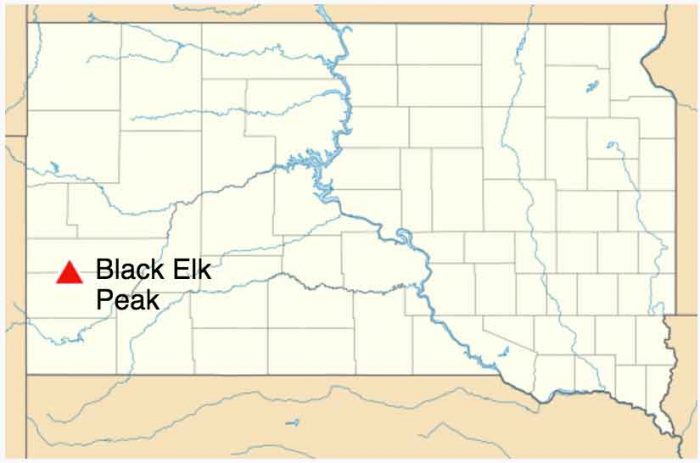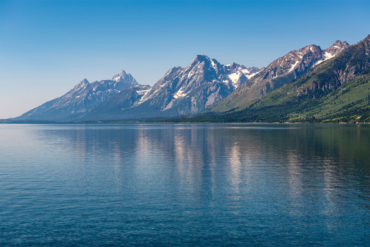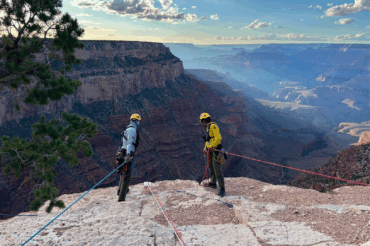Harney Peak is no more. Now, South Dakota’s Black Elk Peak towers over all lands east of the Rocky Mountains, honoring a historic Lakota Elder.

The change replaces the name of Army General William S. Harney who infamously oversaw a massacre of Native women and children in 1855. The peak was named for Harney in 1896.
The U.S. Board on Geographic Names, which presides over any official name changes for American landmarks, unanimously approved the renaming this month.
That decision came on the heels of years of debate from South Dakota tribal and non-tribal members.
Black Elk was an Oglala Lakota medicine man who lived between 1863 and 1950. In 1932, Black Elk became known thanks to an English-translated record of his life, Black Elk Speaks.
Harney Peak Now Black Elk Peak
The Board on Geographic Names heard arguments from the public, official map makers, and South Dakota legislators for years leading up to its decision.
During that time, South Dakota’s own board on geographic naming argued to preserve the name.
Ultimately, the national board’s decision relied on both its mandate to not use names deemed “highly offensive or derogatory to a particular racial or ethnic group, gender, or religious group,” and the precedent upheld in the Federal renaming of Mt. McKinley to Denali last year.
Black Elk Peak stands 7,242 feet high in the Black Hills National Forest. It’s a stunning hike through pine forests and around the region’s famous needle formations.
Take the trek if you’re in the area. Then admire the view from the top, which is equipped with a CCC-era castle-like structure overlooking the Black Hills forests and rock domes that fade into a wilderness that reaches the horizon.








